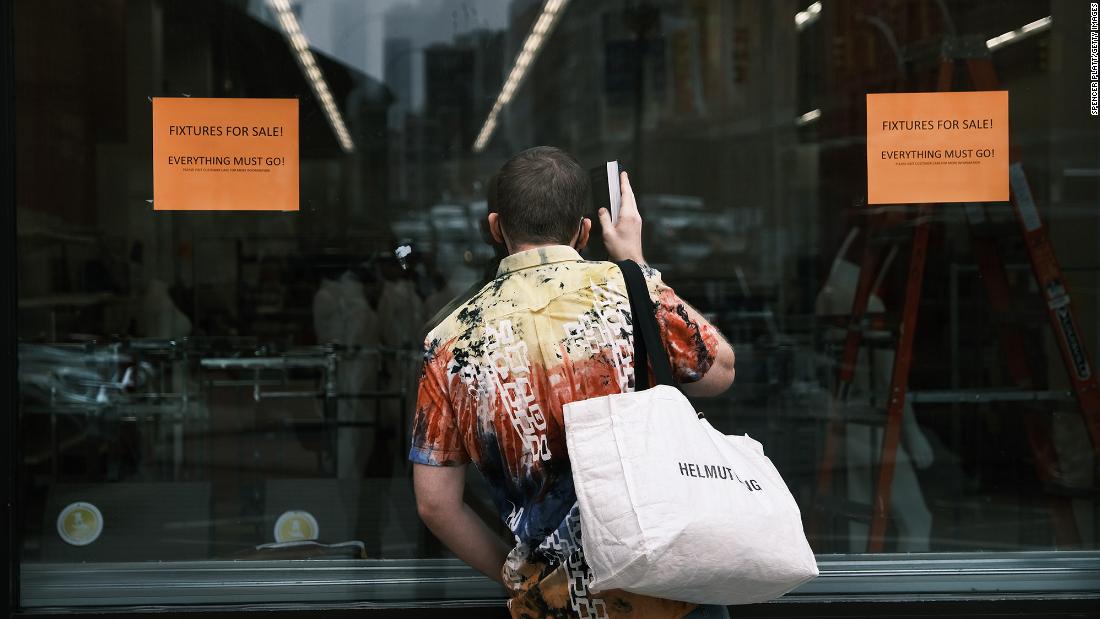Trade in the US does not finish reviving 2:16
New York (CNN Business) -
U.S. retail store closures are expected to fall to a five-year low in 2021, but that's not exactly good news.
The reason is that the industry, which has been hit by a shift to online shopping in recent years, may have bottomed out last year, when closures were the highest on record.
Retail stores in the United States are on track to announce about 3,700 store closures this year, the lowest annual number since 2016, according to commercial real estate data and analytics firm CoStar Group, which tracks publicly announced plans of companies. retail chains.
The closures are estimated to represent around 40 million square feet of space, the lowest since CoStar began tracking such data in 2008.
Last year, a record 12,200 stores closed, according to CoStar, as the pandemic pushed consumers to limit their visits to stories.
In 2020, it would have bottomed out with the closure of retailers, surpassing the closure of 12,000 physical stores.
(Credit: Spencer Platt / Getty Images)
So now, the pace of closings is logically slowing down.
Some of that is because many large chains that were pending bankruptcy, such as Sears, Payless and Ann Taylor's parent, Ascena Retail, have already filed in the last two years.
Filing for bankruptcy often means closing stores in advance.
Only 10 retail companies have filed for bankruptcy this year, Moody's said in an Aug. 13 research report, compared with nearly 70 last year and between 25 and 35 in the previous four years.
advertising
A slow recovery for retail stores
There is also evidence of a recovery from a difficult 2020.
Customers have returned to shopping in person after vaccines were implemented and federal stimulus controls have bolstered their purchasing power.
That has provided much-needed relief to some struggling retail stores that have been able to secure more favorable rental terms from landlords desperate for tenants.
"There is less pressure to shut down," said Ken Fenyo, president of retail research and advisory firm Coresight Research.
"He's seeing a strong return to the store. People are spending and starting to leave. That suggests retailers to close fewer stores than they have and try to take advantage of it."
"This is a good time to agree on rents," he added, and some tenants have been able to negotiate more flexible terms with landlords to avoid closing.
Why are retail stores fleeing New York's Fifth Avenue?
Dozens of chain stores and restaurants, bankrupt 1:12
Much uncertainty for retailers
However, the delta variant of covid-19 that is spreading across the country could change the landscape for store closings this year and next.
If shoppers start avoiding stores and switch more to online stores, or if nonessential stores must temporarily close again, as they did at the start of the pandemic, permanent closings can be accelerated.
"There is certainly great uncertainty as we move into the fall and Christmas season," Fenyo said.
"If things took a turn for the worse and we saw the variance really start to affect sales, we would expect to see a rebound in closings."
In July, retail sales were up 15.8% from a year earlier, according to the latest data from the Census Bureau.
Sales in clothing stores increased 43.4%, while sales in department stores increased 24.3%.
Both areas have recovered this year as many clients renew their wardrobes after a year of sheltering at home.
But looking sequentially, July retail sales excluding cars fell 0.4% from the previous month, raising questions about whether the virus' resurgence will prompt consumers to cut back on spending.
In the long term, the continued growth of online shopping may also mean that chains need fewer stores than before.
UBS estimates that about 80,000 stores in the United States will close in the next five years as online shopping increases from about 15% of retail sales today to 27% by 2026. If e-commerce sales increase to 30% Of retail sales by 2026, nearly 150,000 stores may close, predicts UBS.
Retailers

